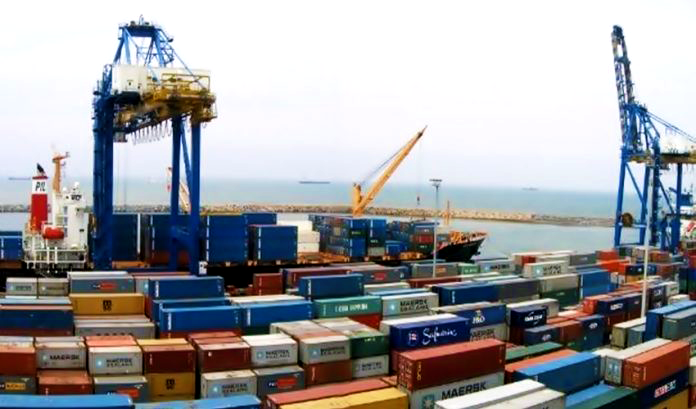The Nigerian House of Representatives has issued a call to the Federal Government, demanding the restoration and operationalization of eastern seaports and dry ports. This move is aimed at alleviating congestion at Lagos ports and to stimulate broader patronage, which would, in turn, fuel the growth of the country’s Gross Domestic Product (GDP).
The proposal was put forth during a plenary session by Mark Esset. While discussing the motion, the House highlighted that Nigeria is home to six major seaports. These include the Apapa Port and Tin Can Island Port in Lagos State, Calabar Port in Cross River State, Harcourt Port and Onne Port in Rivers State, and Warri Port in Delta State.
Esset expressed his dismay at the fact that despite the presence of six seaports, the Apapa and Tin-Can Island Ports in Lagos have primarily served as Nigeria’s economic lifelines, with the remaining ports almost abandoned
“The Apapa and Tin Can Ports are currently being pushed to their limits, operating at three times their intended capacities. This is due to the fact that they are handling over 70 percent of all import and export goods bound for Nigeria. The result is a logistical nightmare, with trucks unable to clear their goods promptly, leading to significant loss of man hours and resources,” Esset elaborated.
He further added that the port congestion, deteriorating quay aprons, and inadequate monitoring system have led to a significant diversion of containers meant for Nigerian markets to ports in neighboring countries such as Ghana, Togo, Benin Republic, and Cote d’Ivoire. This has reportedly resulted in an annual revenue loss of approximately N136 billion.
Backing his argument with a recent report from the Lagos State Chamber of Commerce and Industry, he stated that the congestion at the Apapa and Tin Can ports is costing Nigeria an exorbitant N7.6 trillion annually.
SOURCE: Hallmark News
IMAGE: The Master Press



